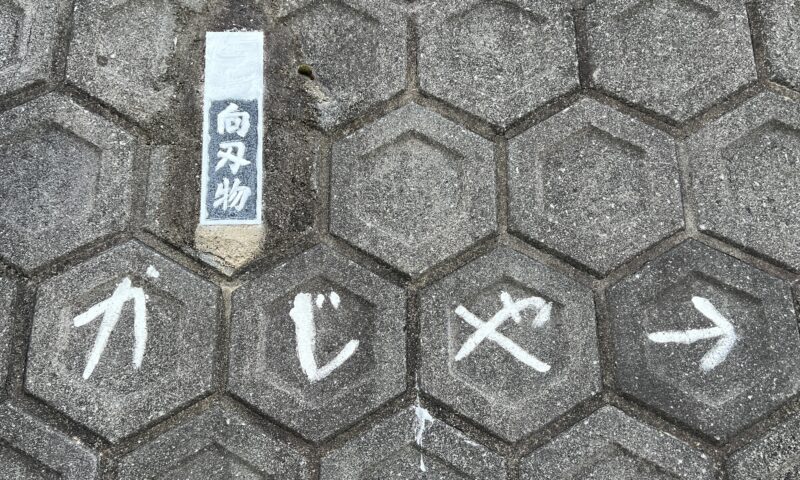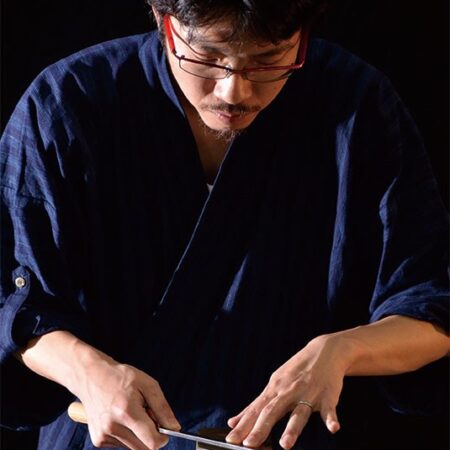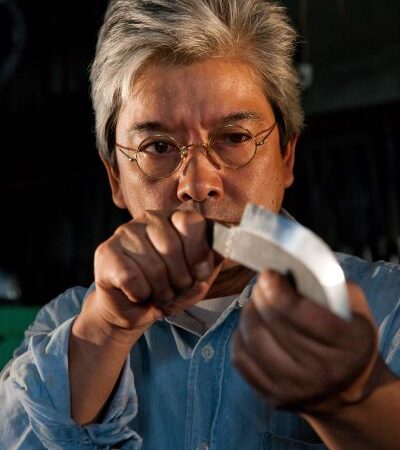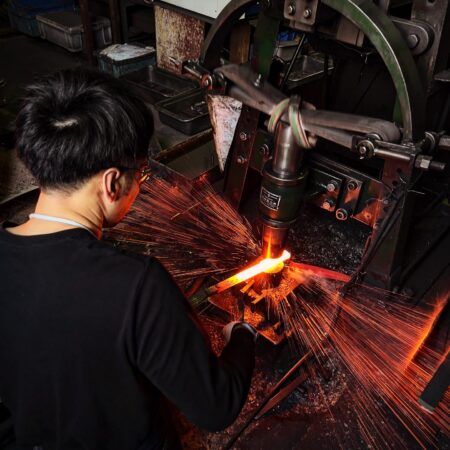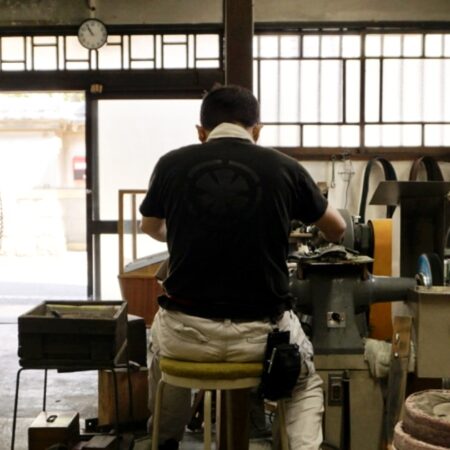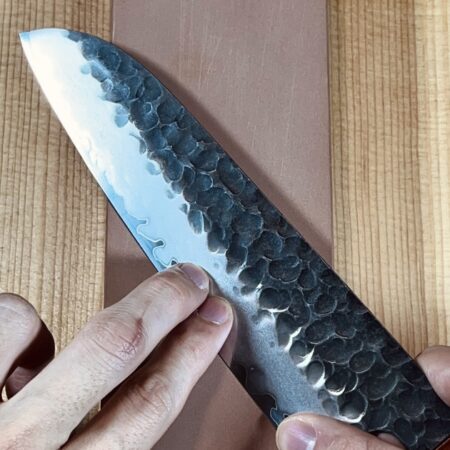Mukou-hamono

Blacksmith : Mr.Yoneo Mukou
“Genkai Masakuni” is a renowned craftsman, primarily known for his expertise in the “Mizu-honyaki” technique.

He currently has his workshop on a small island called Kabeshima in Saga Prefecture, where he crafts knives in a quiet location overlooking the Genkai Sea.

What you see on the left is the raw form of the knife, a rather thick steel plate.
This is gradually extended into the shape of the knife you see in the right hand by forging it with a belt hammer.
Honyaki refers to knives made from a single steel material, and especially Mizuhonyaki, which involves quenching in water, requires extremely high-level skills. As such, there are only a handful of artisans capable of creating these in Japan today.
History of Genkai-Masakuni
He first entered this industry when he became an apprentice to a local blacksmith in Kabeshima, his hometown, in his teens.
Afterwards, he wanted to learn the craft in Sakai, Osaka, which is famous for knife production, and went on to train at Kobayashi Hamono, a blacksmith shop in Sakai.
There, he met his wife and they got married.
Contrary to what is written on the internet, the story that he was a disciple of Mr. Okishiba is entirely false. The truth is, his wife’s family ran a blacksmith shop, and it was there that he learned the craft of knife-making.
After his training in Sakai, he returned to his hometown, Kabeshima, around 1992, and has been involved in knife-making at his current factory for approximately 30 years since then.
A few years ago, his health declined and he has not been doing much blacksmith work since then, and the opportunity to forge knives is also decreasing year by year.
Additionally, several years ago, Mr. Minoru Hakui from Sakai, Osaka, who had been responsible for sharpening Mr. Mukou’s blades for many years (famous under the name Hakuhou), passed away, leaving no craftsmen to handle the blade sharpening, and the volume of finished products has drastically decreased.
The loss of craftsmen who handle other processes is a big blow to artisans who adopt a division of labor system, and the situation is becoming increasingly difficult to continue this work due to the trends of the times and the impact of the coronavirus.

At present, since there will never again be a newly made honyaki (a knife made from a single piece of steel) made jointly by Mr. Yoneo Muko (Genkai Masakuni) and Mr. Minoru Hakui (Minamotohakuhou), it is rare to find one in the market and it would be difficult to acquire.
I myself own around 5-6 of these knives, and each one is incredibly beautiful. I treat them as treasures and handle them with great care.
After my visit
In addition to Mr. Mukou’s own career, we were able to have deep discussions about his thoughts on knife-making, his views on the industry, and even include conversations with his wife and son.
Nowadays, with the Internet (like YouTube and blogs) and word of mouth, it’s easy to access a lot of information, which is very convenient. However, there is just as much information circulating that lacks credibility, and not all of it is correct.
These pieces of information are mostly infused with the subjectivity of the sender, based on what they’ve seen and heard. I believe they should be taken for what they are, nothing more, nothing less, and I myself consider them as just one viewpoint.
If we are satisfied with such information, we may stop seeing things with our own eyes, hearing with our own ears, and feeling with our skin. I believe this prevents us from truly learning.
Moreover, if we stop taking action to learn more deeply, we rob ourselves of the opportunity to grow.
If you truly want to learn deeply, I was once again reminded that the best way is to meet with the person directly, ask them about their experiences, and actually experience things for yourself.
Finally, I had the chance to see dozens of knives forged by Mukou-san. As genuine honyaki (forged from a single piece of high-carbon steel) knives are quite expensive, I couldn’t quite take the plunge this time. However, I did buy two kitchen knives that are likely only available locally as souvenirs.
I am deeply grateful to the entire Mukou family for taking the time to share their stories so thoughtfully. Thank you very much.

